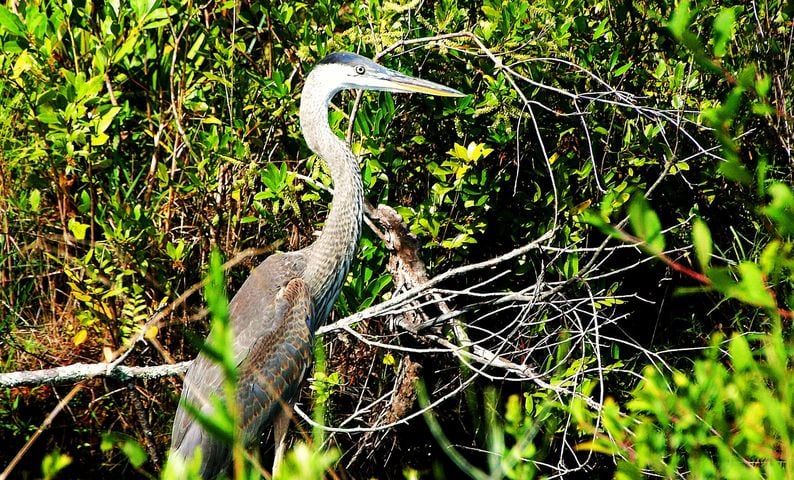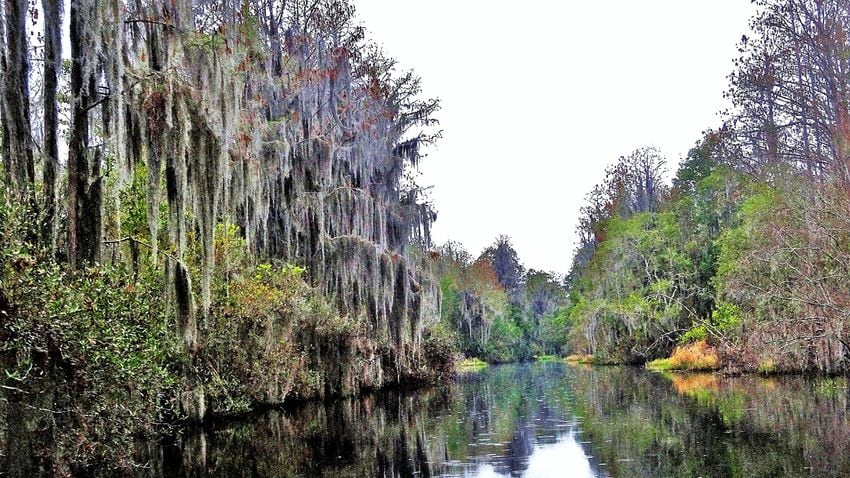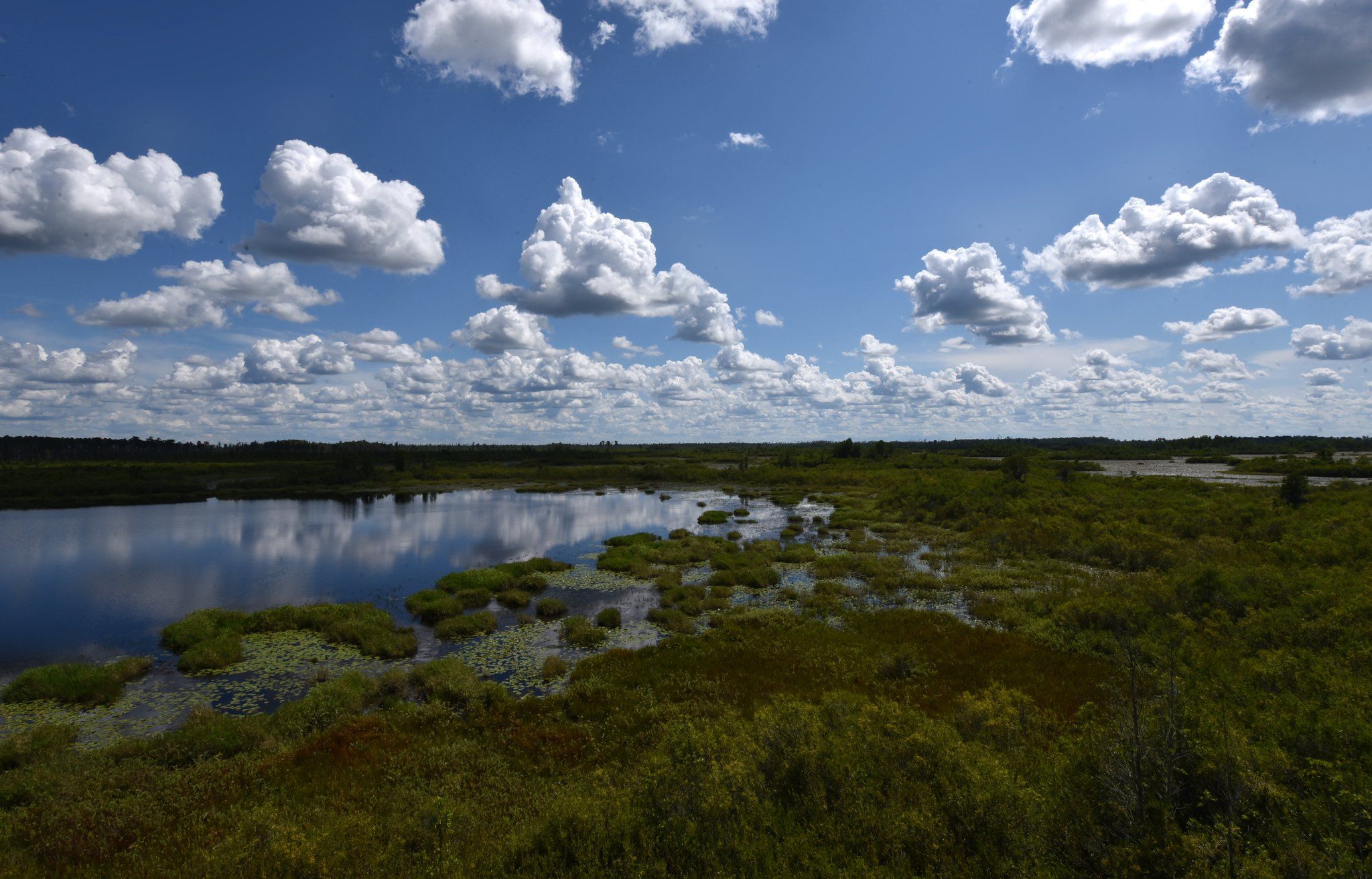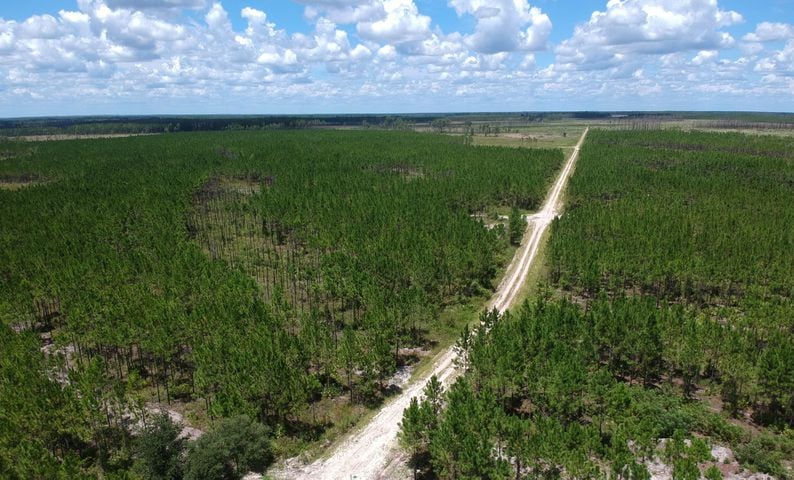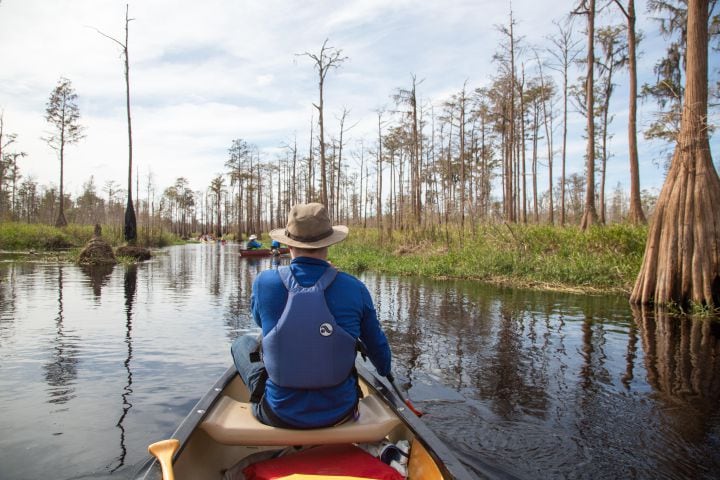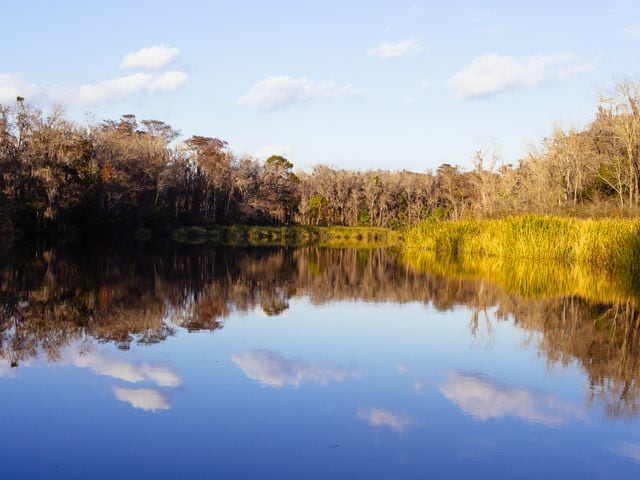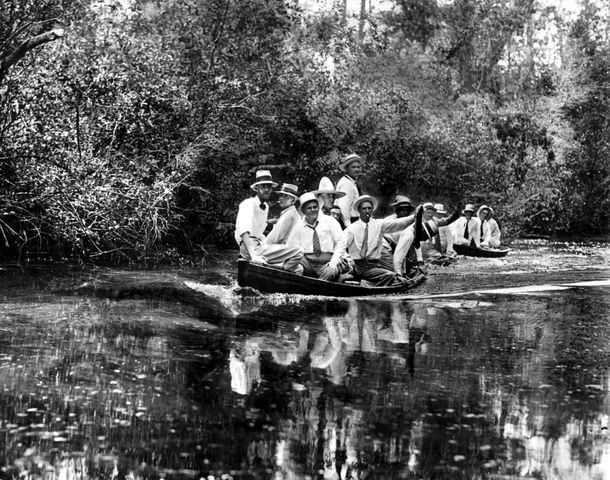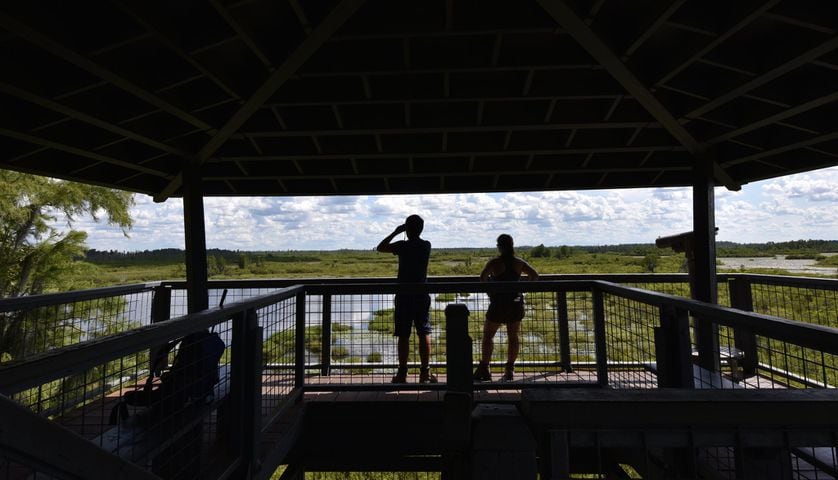What is more important to the next generation of Georgians: the preservation of one of America’s ecological treasures or the mining of a mineral most commonly used in toothpaste whitener and frosted donuts?
Oftentimes, political decisions are complicated. This one is not. Georgia Gov. Brian Kemp and House Speaker Jon Burns have the ability to declare that the preservation of Georgia’s magnificent Okefenokee Swamp is more important to this state, and, in fact, to the whole country, than the business interests of an Alabama mining company that wants to extract titanium dioxide and zirconium.
Kemp and Burns should provide bold leadership and compel a pause in the mining plan to allow the Legislature, conservation groups and private foundations to save and preserve the swamp, a sprawling 400,000-acre natural wonder.
Any day, the state’s Environmental Protection Division (EPD) is expected to grant permits to Twin Pines Minerals, enabling the company to begin extractions on 582 acres of wetlands and flatwoods it owns just 3 miles from the refuge. The planned operation is focused on an area called Trail Ridge, an ecologically significant natural barrier to the largest wildlife refuge east of the Mississippi.
Credit: Hyosub Shin / Hyosub.Shin@ajc.com
Credit: Hyosub Shin / Hyosub.Shin@ajc.com
Environmentalists argue mining could destroy hundreds of acres of wetlands, threaten rare flora and fauna and significantly reduce the water levels in North America’s largest blackwater swamp.
Twin Pines maintains the operation will not adversely affect the refuge, citing environmental impact studies commissioned from TTL laboratories and others. The EPD has publicly said it believes the company. But the EPD’s job isn’t to examine the impact of surface mining at scale over decades. The EPD is in the business of vetting permit applications.
Many conservation groups and the U.S. Fish and Wildlife Service disagree with the EPD’s assessment. In a virtual public meeting Tuesday night, Michael Lusk, the refuge manager for the Okefenokee, said the agency opposes the mine and does not believe Twin Pines’ study accurately reflects the impact to the swamp’s water levels. “We need better information before taking a risk that could impact such an important national treasure,” Lusk said. Lusk was one of nearly 100 speakers at the open forum who came to oppose the project. No one spoke in favor of the mine.
The obstacle to consensus is politics. Last week, the Georgia Legislature failed to bring to a vote two different bills that would have stymied Twin Pines’ plans. House Bill 71, the Okefenokee Protection Act, would have prevented Twin Pines from expanding its operation. It stalled despite bipartisan support from a majority of members. This marks the third straight legislative session in which the bill faltered. The reason why, critics say, is that the legislation was too sweeping and touched a third rail for many key members including Speaker Burns: property rights.
Twin Pines does own the land, and the Trump Administration’s 2019 Navigable Waters Protection Rule reclassified many wetlands, tributaries and small ponds so they no longer enjoy federal protection. This left a window open for the company to apply for a permit with Georgia. The federal government briefly clawed back oversight of the mine, but after a lawsuit was filed by the company, a settlement left the project’s fate in the hands of the state.
Some lawmakers believe infringing upon Twin Pines’ property rights will set a dangerous precedent.
When asked this week for his thoughts, Burns said he believes there is an outcome that can make everyone happy, noting, “We want to protect the natural resources of this state. We will do that. We want to protect private property rights for all the people in this state. We will do that.”
Property rights have been a critical focus for supporters of the project. If Twin Pines is granted a permit, other local property owners, including timber farmers in Charlton County, could potentially apply for mining permits of their own or seek compensation. Burns has connections to the timber industry, having amassed thousands of acres of land, worth millions of dollars, much of which is tied to his family’s timber business, according to financial disclosure forms filed with the state.
To address property rights, state Rep. John Corbett, whose district includes the Okefenokee, introduced a compromise, House Bill 1338. That proposal would place a three-year moratorium on the EPD issuing new permits. Conservation groups universally criticized the legislation for the brief duration of the moratorium and lack of sufficient public review. HB 1338 failed to advance.
Property rights aren’t the only factor at play. Twin Pines maintains the project will be a boon for the local economy, doubling the tax base of Charlton and creating hundreds of much-needed, well-paying jobs. While that may be true, mining the Okefenokee isn’t the only way to boost revenue.
The U.S. Department of the Interior has cleared the way for the refuge to be officially nominated as a UNESCO World Heritage site, alongside wonders of the world such as Angkor Wat and the Great Barrier Reef.
The United States is home to just 25 of the world’s UNESCO sites, including the Grand Canyon, Yellowstone and Everglades National Park. These unparalleled natural treasures attract visitors from around the world, fueling local economies. According to the National Park Service, in 2022, visitors to the Everglades spent $125 million in the surrounding communities, supporting 1,700 jobs.
Credit: Georgia Conservancy
Credit: Georgia Conservancy
If economic impact is driving the rationale for the mine, protecting and preserving the Okefenokee can deliver plenty of value to Charlton County residents.
A description on the UNESCO website outlining the “Justification of Outstanding Universal Value” explains exactly why the refuge is so extraordinary:
Okefenokee is one of the world's largest naturally driven freshwater ecosystems with a diversity of habitat types, including 21 vegetative types. The Refuge's fauna is also renowned worldwide for its diversity of amphibians and reptiles, mammals, birds, fishes and invertebrates and perhaps as many as 1,000 species of moths. Unlike many other significant wetland areas, the swamp is the source of rivers, rather than their recipient … The Refuge's undisturbed peat beds store valuable information on environmental conditions over the past 5,000 years and are a significant source of information related to global changes.
The process to secure World Heritage status is competitive, and the Okefenokee has a fighting chance. If the EPD grants Twin Pines another permit, it is widely believed UNESCO, dispirited by industrial intrusion in a natural wonder, will look elsewhere.
This isn’t the first time our government has wrestled with the fate of the swamp. In 1997, President Bill Clinton’s Interior Secretary Bruce Babbitt implored the DuPont chemical company to reconsider a similar plan to mine near the Okefenokee. Babbitt’s assessment was direct: “Titanium is a common mineral, while the Okefenokee is a very uncommon swamp.”
At the time, Babbitt was joined in his effort by Georgia’s Democratic Gov. Zell Miller and Republican Speaker of the U.S. House of Representatives Newt Gingrich. In 1997, there was little Gingrich and the Clinton administration agreed upon. Okefenokee united them. In the end, DuPont backed down, but only after a $90 million settlement deal was worked out. DuPont, in turn, donated 16,000 acres of adjacent land to the refuge.
Sources say lawmakers and private foundations have discussed offering a payment to Twin Pines to stop the project, but there is reticence to rewarding “bad actors.” Another floated scenario is the establishment of a conservation easement, which would prohibit mining but acknowledge the property rights of Twin Pines and other local landowners. Simply put, if they wanted to open a T-shirt shop adjacent to the UNESCO site to bring in the tourist dollars, they could, but they would not be able to extract titanium near the swamp.
Some politicians and conservationists believe there is a price tag that could safeguard the Okefenokee – a dollar figure that would get Twin Pines to stand down. While that solution might be unpalatable to environmental groups and philanthropists, it may be the best option at this point. It was only a matter of time before someone followed in DuPont’s footsteps. Environmentalists and foundations waited until the house was on fire until they started shopping for a sprinkler system.
Now is the time to act. Two years ago, President Biden’s Interior Secretary Deb Haaland sent a letter to Kemp urging the state to deny mining permits based on “unacceptable risks.” Georgia Sen. Jon Ossoff has repeatedly called on state officials to intervene. Yet, after last week’s legislative failures, there is now nothing to prevent the EPD from issuing the permits.
Still, it is not too late for Kemp and Burns to express support for the compromise language that would create a moratorium on mining the swamp. Rep. Corbett can work with the speaker to get that language into an amendment before the close of the session. Conservationists and philanthropists can work with legislators to use the moratorium to develop a plan to ensure the Okefenokee is forever saved from the threat of mining.
Ultimately, the EPD can reject the permits and tell Twin Pines to take its operation elsewhere. Katherine Moore, president of the Georgia Conservancy, has been a champion of the Okefenokee and of HB 1338. She argues that “the hard-fought battle toward a conservation victory has rarely been clear-cut, nor quick to come to fruition.”
That may be true, but the Okefenokee is an extraordinary place, and our elected officials must take extraordinary steps to preserve it. It is the right thing to do for Georgia, for the nation and for our children and grandchildren.
Andrew Morse, President and Publisher, for the Editorial Board
About the Author
